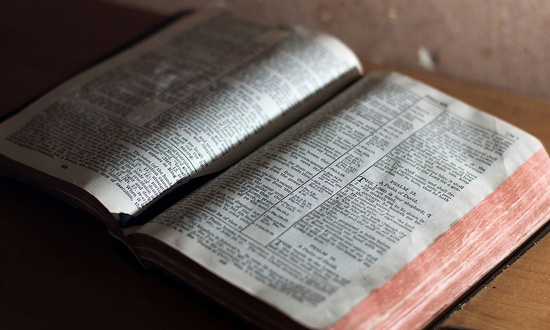Note from Randy: I remember when I took my first vacation without Nanci, just one of many moments and days of the firsts… eating a certain food she used to make, going to a restaurant she loved. I’ve done vacations without her twice now. Once one of my daughters joined me for a week, and that was good. The holiday season is challenging: Christmas is the toughest, then Thanksgiving. Nanci’s birthday is four weeks before Christmas and that’s hard, too. And then there’s December 7, the anniversary of the day we met in 1968 as freshmen in high school, and it keeps going until Valentine’s Day and then March 28, the day of Nanci’s homegoing.
In this article, Clarrisa Moll, author of Beyond the Darkness, shares five tips for the holiday season for those who are grieving. (I quote Clarissa in my booklet Grieving with Hope, and appreciate her insights into grief. She has a new book out with her teen daughter, Hurt Help Hope: A Real Conversation about Teen Grief and Life after Loss.) She writes, “There is a joy to this season that death, trial, and suffering can never take away.” So true. Because of Jesus, we have a rock-solid hope. I believe that more than ever since Nanci entered His presence!
Entering the Gauntlet
5 Tips for preparing for a holiday season without your person
Before Rob died, I used to love November. I’d turn on the radio station as soon as they switched over to “All Christmas All The Time.” I made cutout cookies with my kids, letting them decorate in garish colors and designs to their hearts’ delight. I loved Advent, the season of waiting and anticipation and beginning the church’s greatest story.
And then death arrived, and every November announced my least favorite season of all. Suddenly, in ways I’d never realized, the holidays meant a kind of togetherness I could no longer access, a kind of joy now snuffed out by sorrow. Rob and I had never been big on holiday traditions, but now I couldn’t even walk into Target without feeling the ache of sadness rise up inside my chest. Just keep your eye on March, I told myself. When Thanksgiving, Christmas, New Years, my birthday, and Valentine’s Day would be over. When the gauntlet of holidays would open up into the spacious nothingness of an ordinary month. I suspect as the calendar has turned to November, you’ve begun to feel similarly.
Over the last five years, I’ve slowly rebuilt a love for November. It’s been hard-won, a love that acknowledges the complexity of deep grief alongside the very real joy of a Christchild in a manger. I’ve come to see that acknowledging Rob at the holidays allows me an intimacy of remembrance that, while bittersweet, keeps me close to him in a season where he feels so far away. As I reflect on what I’ve learned, here are five things I’d encourage you to consider as you look ahead to your own gauntlet of holidays. There is no fool-proof or perfect way to face the days that lie ahead, but you too can build rhythms that support and comfort you as you face the holidays without your person.
1. Plan ahead. As an exercise of the mind and heart, take a few minutes and write down a plan for the holiday that approaches. Who do you want to be with you? Where do you want to be? What would you like to do and how? We often feel powerless before the rush of holiday scheduling, but even jotting down a few notes can give you a sense of agency. You don’t need to approach the holidays blind.
2. Hold your plans loosely. If your plan is a blank slate, be aware that you might change your mind and want to be around people when the day arrives. If your plan is to visit with family or friends, only make commitments that you know would understand if you need to bow out. As you mentally and socially “enforce” flexibility, you offer yourself the space to adjust your pace according to the needs of your body, mind or heart.
3. Focus on your body first. When our feelings start to get big, the first things that usually disappear are our self-care routines. We eat poorly, sleep poorly, and move about frantically (or find that a physical heaviness keeps us from any action at all). In preparation for the holidays, be intentional now about caring for your body first. Avoid alcohol, too much caffeine or sugar — we know the emotional swings all three can bring even on our best days! Block out space in your calendar for rest and/or exercise.
4. Phone a friend. Friends and family are understandably busy during the holidays. (You once were too, and you loved it — even if it was crazy.) Grieving folks can feel left behind in the hubbub of everybody else’s busyness and excitement, so make a proactive effort now to connect with a friend who can offer a lifeline text or call when you need it. Not sure who to ask? Be honest, straightforward and simple. I anticipate the holidays being hard this year. Would you be willing and available to be my phone-a-friend if I start to struggle or need a word of encouragement? All it takes is one friend to send you a funny meme on Thanksgiving or an encouraging email to wake up to on Christmas morning. One relationship in a time of stress can make all the difference.
5. Forecast joy. I’ve heard from so many grieving folks that the trappings of Christmas mean little to them now, but the story of Jesus’ birth has grown exponentially in meaning since their person died.
The truth is … Thanksgiving is about acknowledging God as the Great Provider. Christmas is about acknowledging Jesus as the Prince of Peace and Conqueror of sin and death. New Year’s Day reminds us that the Spirit goes before us to order all our days in wisdom and loving kindness. Valentine’s Day reminds us that we are the Beloved — now and forever. There is a joy to this season that death, trial, and suffering can never take away. And if you can forecast disaster (and heaven knows we do that enough!), you have the same power to forecast that deep abiding, soul-feeding joy as well.
Forecasting joy is a discipline of the heart. It requires that we acknowledge all of the world’s deep darkness and hold it honestly. And, in that trembling hand, joy sits with its little light, reminding us that we still see through a glass darkly, this world is not our home, salvation is now nearer than when we first believed.
This article originally appeared on Clarissa’s Substack, and is used with permission.




